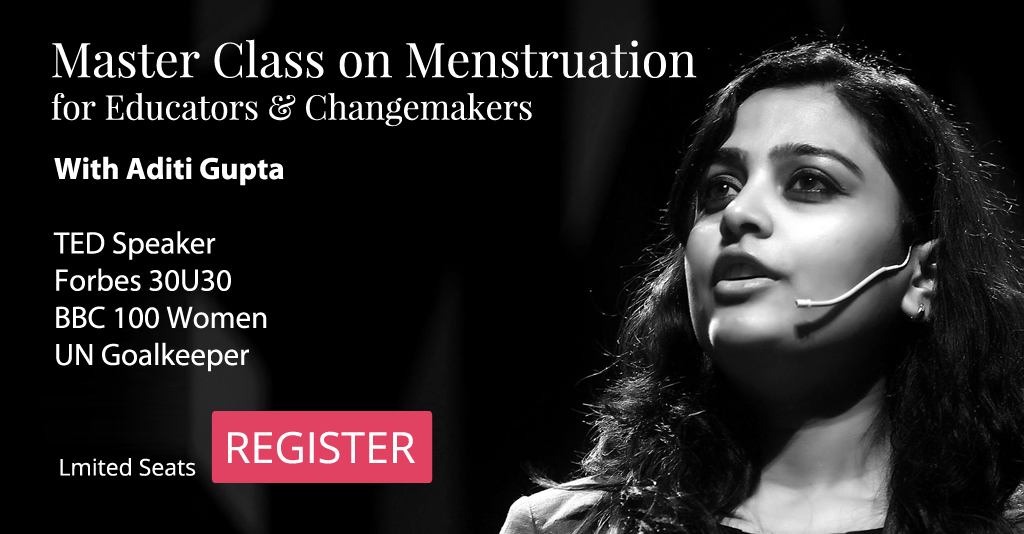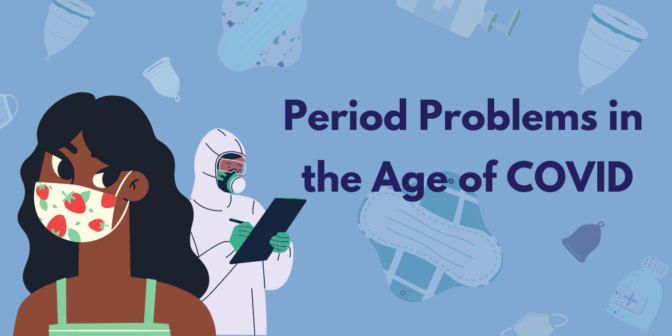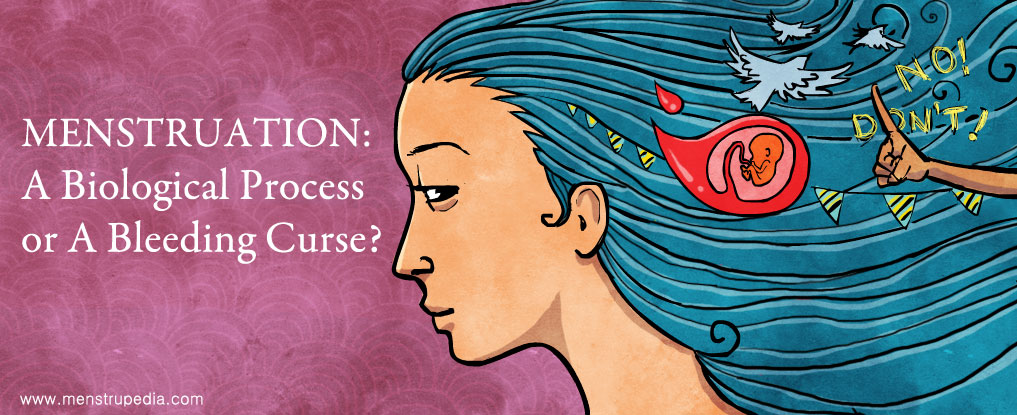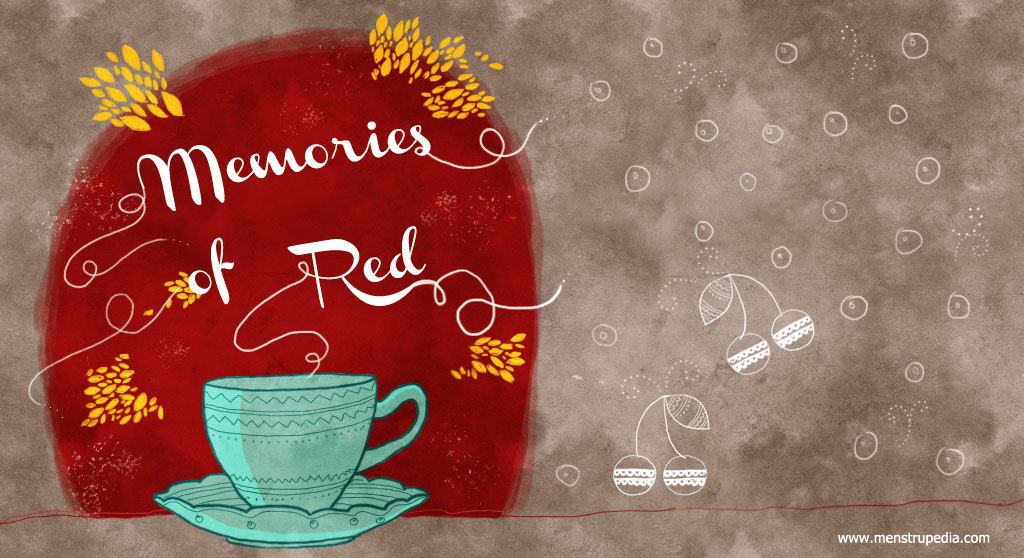It first struck me when I was in line in front of a convenience store at the beginning of the pandemic. This store had set a few pandemic measures for observing social distancing norms. One of them included being barred from entering the store and asking for your needs at the threshold, as opposed to browsing its two narrow aisles and picking what you wanted. It is here that I witnessed how explaining her period product of choice and the size she wanted it in, was visibly a source of unease for a young girl in front of me.
From calling it ‘woh-wala’ at the convenience store to wrapping sanitary pads in black polythene packets and newspaper bags after purchase; from secretively begging the girls in the class for an extra pad before the boys start to notice or hiding your pad en route to the bathroom, these patterns of shame have been ingrained in us. As a trainee journalist, I was once on an assignment to make a vox pop on period awareness. We hit popular public areas in Bangalore with heavy footfall, in order to get a wide range of opinions. While people often gave us politically correct answers to state on record their ‘liberal-broad mindedness’ they did justify the collective stigma as something that ‘the elders’ believed in or what ‘the nameless society’ considered to be important.

The fact remains that we do not admit that in reality, we think of periods as far dirtier than what it is, even if we do not publicly call it so. For something as innocuous as blood flowing out of our body, we dress it up with one too many euphemisms and clever phrasings. We call it ‘Aunt Flo’, ‘the Red Sea,’ ‘shark attack,’ ‘lady business,’ the ‘time of the month,’ ‘the crimson tide’ and my personal favourite: ‘the red wedding.’ When I was a kid, we called it ‘chums.’ Reflecting on the irony of it, let me add that if my ‘chum’ left me bloated, angsty and barely functional, it’s only sensible to call it quits on such a toxic friendship. But this stigma is nothing new, as we as a society have always been queasy about periods. So what happens when the existing stigma meets a pandemic?
Speaking to peers about residents, doctors, and family friends in the profession, the collective consensus on PPEs and protective gear (if the place they worked at happened to have enough of it), the big issue is that they are just as highly inconvenient as they are necessary. With growing cases in popular metro cities and a particularly interesting testimonial that circulated online, I found myself exposed to the horror of menstruating for COVID frontline workers. Firstly, there are long intense work hours that sometimes stretch to 12 hours or more depending on the patient inflow in the city that they live in. Added to that is the fear of staining their scrubs/ protective gear on the days they are menstruating. If at all they do and it is stained beyond repair, they’d have to change into fresh ones. Changing/discarding suits before fully utilising them, all while knowing that there are so few of them available are some of the uncomfortable choices menstruating frontline workers have to make. Lastly, there are unique bodily symptoms that each woman experiences, which sometimes makes it hard to determine how healthy they look and feel. All of this leaves many of these women biting onto as many painkillers as possible in order to be able to face the gruelling day ahead. These are some of the many undiscussed daily ordeals, but in the grand scheme of things against life and death, they might seem pretty paltry.
I even remember a family friend who is a paediatrician exclaiming that once he suits up and starts admitting patients, it takes at least four hours before he can catch a break and remove his two masks to even get in a sip of water. I will leave it to you to imagine the plight of menstruating women in this situation. Do note that this is just doctors and that the experiences of policewomen, sanitation workers and other frontline workers remains unspoken for.
Then again, the pandemic has not only affected doctors and frontline workers, it has affected commoners like you and me. There are many women among us who have to work from home, do chores at home, cook all meals, and if they are unlucky enough to have young kids, they will also have to find ways to engage their children and ensure that their education isn’t on pause. The physical toll, let alone the horrifying mental effect this could exercise, is a shadow pandemic in and of itself.
If we weren’t uneasy enough, the bodily distress and mental stress of a global pandemic can trigger and confuse our bodies to drastic proportions during our monthly periods. Talking to a friend who is a final year undergraduate student like me, the stress of college ending abruptly, coupled with the looming uncertainty of our now indefinitely paused futures, we discussed how our periods too have been irregular and how our monthly physical symptoms are on overdrive. If you are one of my peers suffering from PCOS or have had to brave through cyclones and floods in these times, I cannot begin to fathom all that you are undergoing.
Not to forget, our nation is steeped with rampant poverty and inadequately distributed resources. This pandemic, it will not just be the lack of awareness but the lack of options that will drive many along the path of unhygienic and incorrect period practices. The reduced income, increasing immobility and for a distressed many, crossing borders and travelling miles under the harsh sun with little hope of finding a place to rest, period hygiene and sanitation facilities are too far-fetched to even imagine or consider.
In a country where sanitary requirements needed considerable uproar to be deemed as essential goods, I find myself pessimistically staring at the reality of how far this will set us back from the growing positive period momentum that was slowly entering into our collective consciousness. If I were to sum it up with one last euphemism, I’d say it’s nothing less than Code Red in the world’s pants!

Author: Janani Janarthanan
Janani is a graduate in the field of media communications with a keen passion for words, both written and spoken. She maintains a blog of four years that can be found at yarnsofideas.wordpress.com
Edited by: Divya Rosaline







